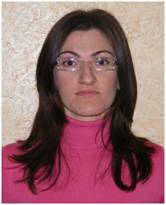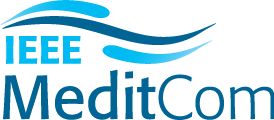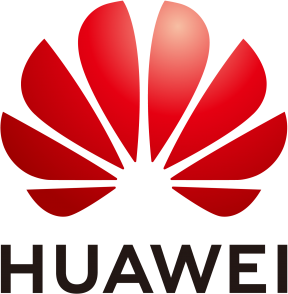Scope
To effectively support future 6G applications, the research community is promoting the Digital Twin (DT) technology. By creating the virtual representation of the elements, dynamics and services of physical systems, including objects and humans, DTs are expected to provide crucial support to the ambitious Sixth-generation (6G) applications, like Extended Reality (XR), autonomous driving and remote healthcare.
However, to provide such composite and complex applications, the research community on DTs have to face major research challenges, such as the definition of expressive DT representation models to manage the DTs’ dynamic nature and the design of scalable autonomous search engine among a huge number of DTs, with intensive interactions, heterogeneous communications, and billions of services.
Moreover, based on the distinct requirements of the applications, different orchestration and deployment mechanisms can be envisioned.
DTs are typically hosted in remote Cloud data centers to provide compute-intensive services but they can also migrate at the network edge to provide ultra-low-latency services and quickly interact with their real counterpart. In this context, it becomes crucial to provide optimal DT service placement in the presence of multiple edge nodes with distinct computation and storage capabilities and investigate caching policies to reuse the available DT services that can be offered to distinct clients.
So far, the literature has mainly focused on application-specific solutions for DTs, e.g., in the manufacturing field, but new holistic approaches can be devised in 6G environments. For example, revolutionary networking paradigms, like the Social Internet of Things (SIoT), can foster trustworthy and effective DT service discovery; service-centric communications, implemented by Information-Centric Networking (ICN) architectures, can facilitate the orchestration of DT at the edge and their service reuse.
Topics of Interest
- DT modelling
- Edge computing platforms for DT
- Edge-Cloud DT orchestration
- Social network solutions for DT
- Information-Centric Networking (ICN) for DT
- DT use cases
- AI/ML for DT design
- Protocols for intra-twin and inter-twin communications.
- DT service caching
- DT service discovery mechanisms
- DT optimal service placement at the Edge
- DT service reuse policy design
- DT trustworthiness and security management
- Testbed designs and implementation of DT-based applications
- Network simulations of DT-enabled 6G
Keynote
Talk Title: Network Digital Twin as Key Enablers of 6G systems

Abstract: By acting as the digital counterpart of physical assets, the Digital Twin (DT) technology holds promise in different domains, ranging from smart manufacturing to e-health and automotive. Recently, the idea of leveraging the DT concept to monitor, predict, optimize and configure the behaviour of telco network elements is gaining momentum as a key enabler of upcoming sixth generation (6G) systems. The keynote provides a timely and comprehensive overview of the emerging network digital twin (NDT) concept. Nonetheless the potential benefits of NDTs, embedding them into the network ecosystem raises several concerns encompassing, among others, their lifecycle management and the network burden due to the heavy and near-real time bidirectional interactions with physical network components.
The recent literature as well as the specifications from standardization bodies will be scanned to identify the main achievements and potential open issues and to highlight future research directions. The main lesson learnt during the activities conducted within the COHERENT project (as part of the italian R&D program RESTART “RESearch and innovation on future Telecommunications systems and networks, to make Italy more smart”, funded by the European Union – NextGenerationEU) will be also shared with the
attendees.
Bio: Claudia Campolo is an Associate Professor of Telecommunications at University Mediterranea of Reggio Calabria, Italy and an associated member of WiLab in CNIT. She received a Laurea degree in Telecommunications Engineering (2007) and a PhD degree (2011) from the same university. In 2008 she was a visiting PhD student at Politecnico di Torino and a DAAD fellow at University of Paderborn, Germany in 2015. Her main research interests are in the field of vehicular networking, 5G/6G systems, future Internet architectures and digital twins. She is author of more than 160 publications in international journals, conferences and book chapters, with an h-index equal to 43 (Scholar Google) and >7500 (Scholar Google). She has received numerous awards and recognitions, including best paper awards for research in the vehicular networking field, the IEEE ComSoc EMEA Outstanding Young Researcher Award in 2015, the N2Women: Rising Stars in Computer Networking and Communications recognition in 2017. She has been listed in the Stanford’s list of the top 2% of researchers (years 2020, 2021, 2022).
She is involved in the organization of many international conferences as TPC/publicity/track chair, workshop organizer and she gave tutorials about vehicular networking at IEEE WCNC 2012, 2018 and 2019, IEEE ICC 2017, EUCNC 2017, IEEE PIMRC 2019. She was the organizer of the panel “V2X Connectivity and Learning on the Road towards Cooperative Automated Driving” at IEEE PIMRC 2021. She is currently editor for IEEE Transactions on Vehicular Technology, IEEE Communications Letters, IEEE Open Journal of ITS, Computer Networks, Sensors and she was guest editor for several special issues. She was co-editor of the book “Vehicular ad hoc network: standards, solutions and research”, Springer-Verlag 2015. She is currently involved in the design of Network Digital Twins within the COHERENT project in the EU-funded italian R&D program RESTART “RESearch and innovation on future Telecommunications systems and networks, to make Italy more smart".
Important Dates
- Workshop Paper Submission Deadline: 30 April 2024 (Extended & Firm)
- Paper Acceptance Notification: 14 May 2024
- Camera Ready: 1 June 2024
Submission Link
https://edas.info/newPaper.php?c=31484&track=123458
Workshop Chairs
- Dr. Michele Nitti, University of Cagliari, Italy
- Dr. Marica Amadeo, University Mediterranea of Reggio Calabria, Italy
- Prof. Ali Kashif Bashir, Manchester Metropolitan University, UK
- Prof. Giuseppe Ruggeri, University Mediterranea of Reggio Calabria, Italy





